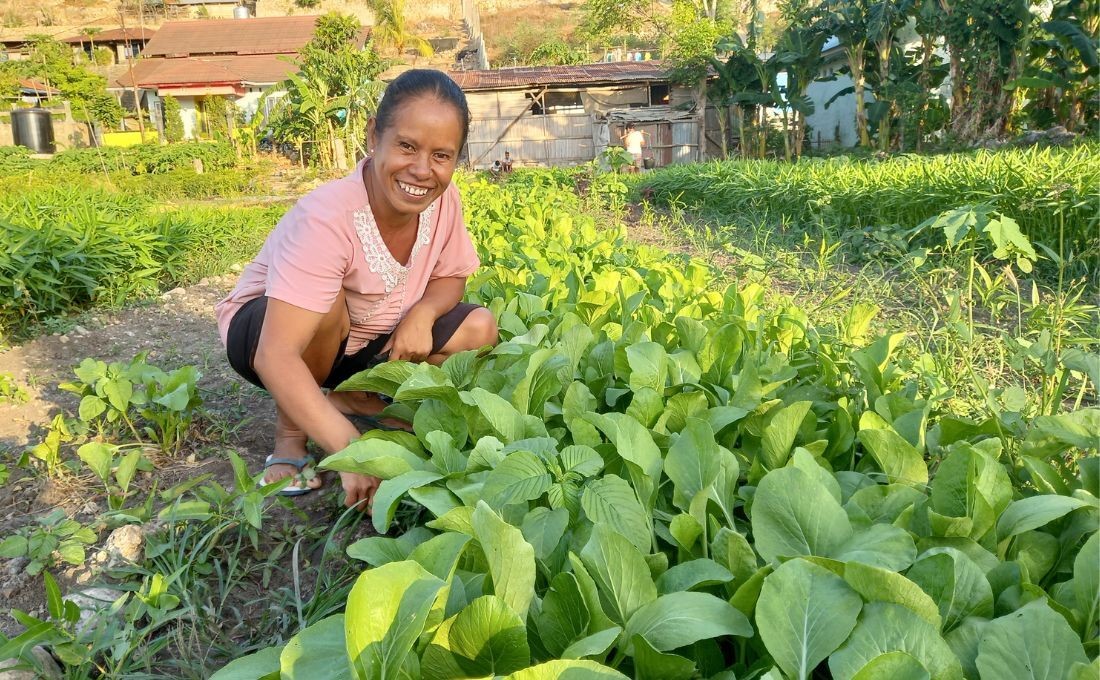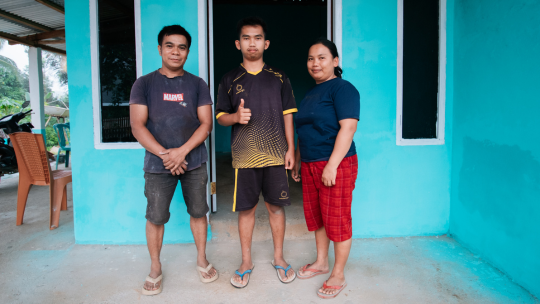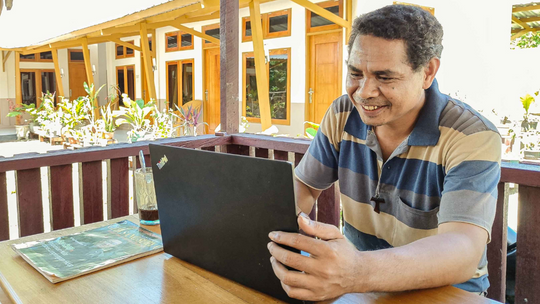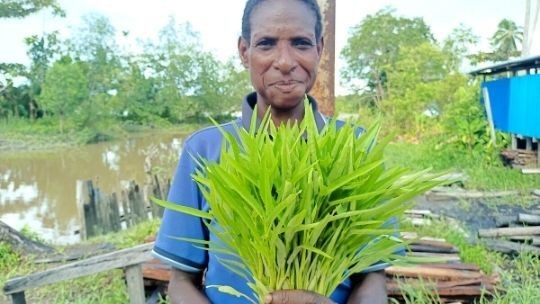Manage Vacant Land, This Woman Has Succeeded in Helping the Family Economy

Doing housewife activities is something that Maria Hoar (38) usually does. However, this is the first time for her to manage the empty land belonging to the church and turn it into horticultural land. Unexpectedly, her decision was able to help the family household economy, especially during the Covid-19 pandemic.
Together with a dozen other women who are members of the women's group, including the woman pastor of GMIT (Gereja Masehi Injili di Timor), Maria is working on a 25-acre vacant land belonging to the church. Each person was entrusted to work on two beds with a width of 1 meter and a length of 20 meters. This group of women uses the available water on the land so that their land is never dry.
“I cultivate kale and mustard greens. The choice of this commodity is deliberately taken so that in every month between 25-30 days I can harvest the results. Even if it is only lifting or carrying water with two buckets, I am still enthusiastic about watering every morning and evening. I have been doing this activity since May 2020. My husband also often helps when he is not busy in irrigated fields,” said Maria.
During her success, Maria admitted that she was affected by the hurricane that occurred in her area in April 2021. However, in coordination with the local village head, Maria and the women's farmer group received the horticultural seeds from the Moringa project of Wahana Visi Indonesia, funded by Australian Aid, to continue post-disaster agricultural activities.
“The women and I felt very helpful because at that time the situation and conditions were troublesome. Through coordination with GMIT management in the asset section and the pastor, my friends and I were facilitated by WVI to see the location of horticulture in Besmarak Village, which is also the location of the drip irrigation demonstration plot," said the mother of four.
In addition to receiving seed assistance, Maria claimed benefited from the accompaniment provided by WVI. Also, the visits to other villages made Maria's knowledge of agriculture increase.
"From land cultivation, planting, maintenance, weeding to harvesting. The application of drip irrigation technology has brought new enthusiasm for my friends and me to change our manual watering habits to be more efficient and effective, especially in such an area," she explained regarding the new knowledge.
Now Maria and other women are increasingly committed to producing. They have submitted proposals for assistance to various parties and made a contract with the church for land management for the next 2 years.
Written by: Matheos Dima, PJI Staff, and Putri Barus, Communications Officer of Wahana Visi Indonesia
Translated by: Aqueta Alexandra Kroons, Intern Wahana Visi Indonesia



